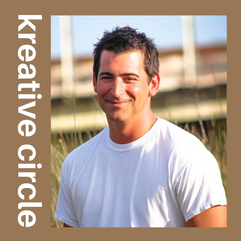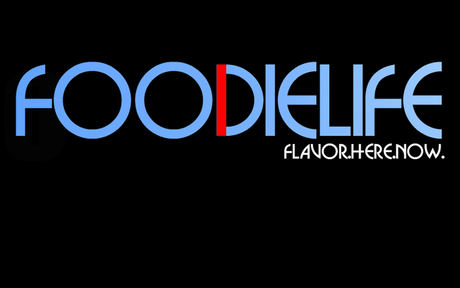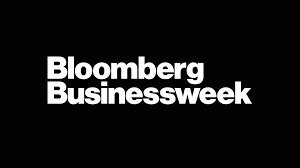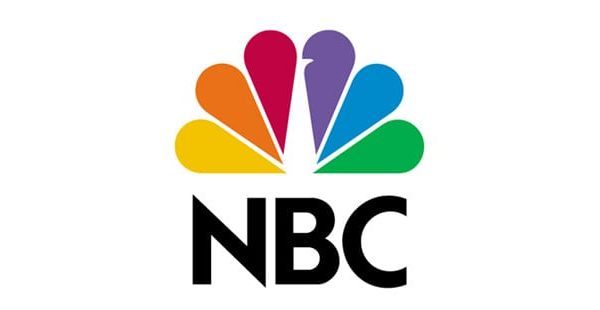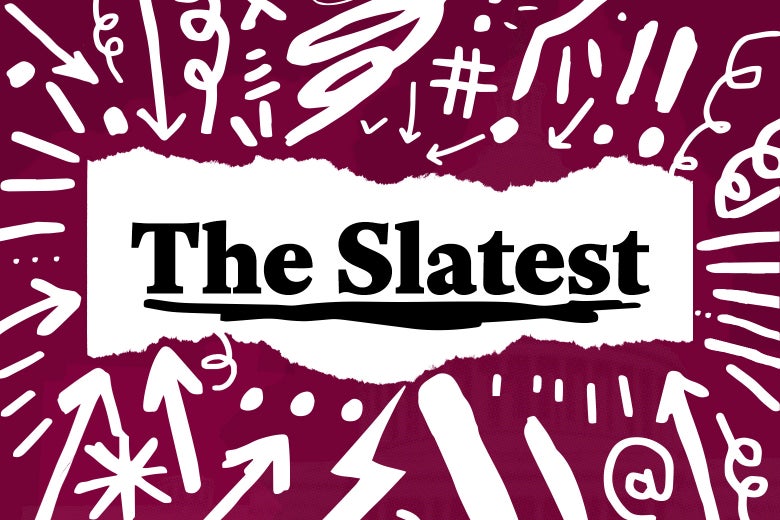Welcome! Keith, as a chef, how important is it for you to build relationships with patrons that benefit from your culinary skills?
I think it's very important you know in this day and age you're trading time for attention. Your relationship, your product quality and your brand is what keeps them coming back. You know people are always looking for something to relate to one another. I think that's human nature, we want to find commonality among us because it helps us deal with life in general but also creates that experience that forever holds somebody's attention as a memory, or as an experience in their life that they don't forget. They want others to share in the experience as well. These are the types of relationships that you want to build with your patrons. You want them to leave there knowing this is the only place that they can get this experience - it's unique, it's tailored, it's genuine and it's something that is worth my attention that is worth me taking my time from somewhere else and dedicating it towards this experience. You have to be real, there has to be a face to the name of the brand, there has to be something for them to relate to and give you their attention for beyond just a product.
What is the best compliment that you've received as a chef?
This one is easy…a clean plate. When someone finishes their meal and there's nothing left on that plate then I know they enjoyed it and that makes me happy and I smile. It’s a compliment every Chef wants!
What is the best constructive guidance you've received during your 26 year career as a chef?
Learning how to not react, not give your power away and also how to be flexible like a bamboo in the wind because without those two things you are bound to get your emotions wrapped up with all kinds of misdirection. If you're not flexible, you'll sink that ship before you even get started.
What is the secret behind executing a wide range of culinary cuisine on a fixed budget? What are the do's and don'ts when working with such constraints?
I would say the best secret I can give you is learn how to do cross utilization. Learn how to use the same ingredient in multiple dishes and learn how to source locally. You’re probably going to get a better price from the local guide down the street who's got probably fresher ingredients than you are at any major chain where they have to cover cost for labor and transportation and all the other things that come with doing commerce, whereas the gentleman down the road who you know has a small farmer's backyard with probably the best tomatoes on the side of the highway that I've ever tasted. You'll be supporting small business which is always a good thing. The second best secret I can give you is to learn your cooking techniques with the proper cooking tips. You can use less expensive cuts of meat in less expensive ingredients and still get a great flavor profile or you know how to properly season that less expensive ingredient and that in turn will lead to an easier time with the budget.
As a foodie, what are the following...
Your favorite meal of the day? What is it?
Midnight Snack- Peanut butter & jelly with tall glass of cold milk!
A favorite dish you can cook with your eyes closed?
OK, this is gonna seem kind of funny coming from a chef but I love Ramen noodles and I love all the ways that you can make them with all the cool ingredients that you can put with them and you can take a noodle bowl and turn it into 500 different ways to have a noodle bowl. It is one of my most favorite dishes. I ate it growing up as a young kid. I used it during college because I was on a tight budget, it was just one of those things that you could always add something else to it and it was never the same dish choice so I would absolutely love it.
Do you have a favorite vegetable?
Brussels sprouts with bacon and onions.
Is there a fruit that is tasty yet requires high precision to integrate in your cooking?
You know not anyone in particular but usually when you start introducing fruit into the culinary world it should be pretty well thought out in the sense of the flavor profiles and how they're going to blend with each other.
What is one dish that you believe everyone should know how to cook?
Spaghetti and meatballs with a good tomato sauce or as we call it in the Italian world 'gravy'.
What is one ingredient that you use a lot in your cooking?
LOVE!!!
What is one ingredient that you should use more in your cooking but you don't?
Homemade stocks are so affordable. You just need to take the time to make them. I just don't have the time but I do miss them a lot.
If you had to describe the colors on your dinner plate, what would they be?
I would say bright reds and greens and yellows. You know usually the brighter the dish, the fresher it is at least that's what my eyes always tell me. Usually bright yellows, reds, greens and purples - these colors are the things that signify more fresh than not.
What is the most difficult recipe you've had to prepare?
I don't do very well with the patience of baking so usually anything that acquires intense baking gives me trouble.
If you had to forego appetizers or a dessert, which one would you pass?
Appetizer!! Because again, I don’t do well making my own desserts. It’s why the pastry chef is so important.
Your last meal would be?
ONE I DIDN’T HAVE TO COOK…..LOL!!
As an entrepreneur who founded and managed EightFifty:Media, what were the top two lessons you learned about the media landscape in your initial year of conducting business? Is there anything you would've done differently?
That change is the only constant and attention is the only real currency. I think if I had to go back and do anything different, I think it would be probably more focused on just a few of the services we offered - the ones we were really good at - just go all in and double down on those and let others who are good at the other stuff do the other stuff. It's very easy to get yourself spread too thin trying to chase the dollar especially as an entrepreneur when you need every dollar you can get. Sometimes that can cause people to get out of their lane and maybe take on something that they aren't as good at or which doesn't really represent the foundation of the company that they are building, or the services that they offer. I know when we first started with 850 in the digital marketing space we were doing all things for all people and it ended up spreading us way too thin and it was about 8 or 9 months in before we realized that we probably had about four things that we did ‘really really really’ well. If we just focused on those strengths that could be the bread and butter, everything else we get outsourced to those that could do it better than us. Now that's a successful formula right there!
Storytelling is an art. Is there a story from your childhood that you remember to this day?
So this one day I got a brand new pair of roller blades and was at my grandparent’s house. They had this huge hill out in front of their house that had this really steep curve on it and I just thought it was going to be the coolest thing to come flying down the hill and make this cool you know lean into the curve like they do on the TV where you put your hand down and kind of drag it on the ground and stuff. Well I went for it full on probably about 30 miles an hour coming down the hill and I got a rock stuck between the back wheel in the break and I didn't have my shirt on and I just scraped it. It absolutely screwed up my whole back of my body and my side from my head to my toe and you know here's where my generation always can kind of find something to relate to - we always had the grandparents that never just had hydrogen peroxide or just would put neosporin on it. It was always alcohol and iodine. I don't know if you understands what that means, or if you are making the same face I am right now just thinking about it, but if you've ever put iodine or alcohol on a cut it doesn't feel good and if you can imagine from my head to my toe scrapes - huge scrapes - from hitting the asphalt, covered in iodine and alcohol I was in so much pain I almost never rollerbladed again.
Keith, in your opinion, where do you believe people can do a better job with storytelling?
You know I think one of the best pieces of advice that was ever given to me about public speaking or telling your story was stay in your lane and talk about what you know because those are the things that you can relate to and those are the things you can translate the emotion, you can set the scene and you can really sort of put the crowd or the audience there because you've experienced it. It's what you know, you should be able to describe it a lot better than say something that you don't know.
Given all the media and social sharing platforms, if you had to only rely on one source to share your professional craft, what source/platform would it be?
I think the value of word of mouth is still the most underrated advertising that's out there if I had to go for one of them that's the one I would choose.
As the founder of FoodieLife, what are a few qualities of a devoted foodie? How would you immediately recognize an impostor foodie?
Oh I think you can tell a real foodie by the excitement that you hear in their voice or see the expressions on their face when you start talking about food. Sometimes it's the simple stuff like just talking about peanut butter and jelly. What kind of bread to put it on, what kind of jelly to get and how thick, how much crunch is there, and whether is it smooth. You start really getting the feel for how much somebody enjoys food when you listen to them talk about it
Keith, you were a co-creator on GrubOn TV and You Say Tomato. You Say Tomato takes the audience on a journey of discovery that celebrates the best of British and American cuisines. What did you learn about British cuisine and dining when working with your co-presenter David Gillespie?
I think the biggest thing that I learned with David and Mark and the crew of GrubOn TV and You Say Tomato, was that we may have different names for the ingredients but most of the things are pretty common. We drink champagne to celebrate, we eat roast for Christmas, we like ice cream. It's a ballpark you know, it's these experiences that food creates for us that are the same across the board no matter what language or what country you’re from. While growing up, I found that very very fascinating and I don't think that we really understand enough sometimes that food really is a huge vehicle for humanity to make many things happen especially when it comes down to the fundamental ability to relate to another human being and find something in common with that person across the table from you.
Is there anything American chefs and restaurateurs can learn from the British culture?
Day drinking. Laughing out loud, seriously it's a skill, an acquired skill that I don't have but the British could teach you that's for sure. In all seriousness I think one of the things that I really enjoyed about Dave and Mark and seeing the British side of food was entrenched in their roots there. Their relationship to the memories in the taste experiences that came from the dishes that their parents made passed on from their grandparents made sure they had growing up are a really fundamental part of the cooking over there. I think the regional exploitation of what is available to you at that point in time is what you cook was a really neat thing and a great concept.
While you're busy as a chef, entrepreneur, producer and storyteller, how do you keep yourself grounded day to day?
Transcendental meditation at least 1x a day but I like to do it 2x to keep me grounded and thinking clearly.
Do you have a morning ritual? How do you set the tone for the day?
My goal every morning is to strive to have at least an hour and a half to two hours to myself. I've always subscribed to if you can't put time for yourself aside each day then how are you going to expect to put time aside for anybody else. My morning routine consists of usually some good reading, a paragraph or two of something spiritual or enlightening, then some transcendental meditation followed by some coffee and just sort of a slow breakfast. Throughout the years, my mornings were very fast and I have learned that slower mornings make me way better prepared for the day so that is what I strive to do.
Is there a book from the business, artistic or spiritual genre that you recommend audiences to read?
There are actually three books that I would suggest you read on just knowing business better as well as artistic and all spiritual. I think all three of those books fit in with these genres. The first one is the Four Agreements, which I think is just a fantastic book. The second one is A Course In Miracles which is a real good mind twist about how the ego really just needs to calm down. The last but not least I read a chapter of the TAO every morning and I think it's just a great way to keep yourself grounded. It's a good way to look at the energy that is everything, whatever you want to call it and I don't even think you have to be Buddhist for the TAO to mean something. Those are three books that every morning I try to read a piece of every morning.
Please share with audiences with how they can support your work.
Pensacola Business Radio @ Instagram | FoodieLife @ Instagram | FoodieLife @ Facebook | Keith Hoffert Website
I think it's very important you know in this day and age you're trading time for attention. Your relationship, your product quality and your brand is what keeps them coming back. You know people are always looking for something to relate to one another. I think that's human nature, we want to find commonality among us because it helps us deal with life in general but also creates that experience that forever holds somebody's attention as a memory, or as an experience in their life that they don't forget. They want others to share in the experience as well. These are the types of relationships that you want to build with your patrons. You want them to leave there knowing this is the only place that they can get this experience - it's unique, it's tailored, it's genuine and it's something that is worth my attention that is worth me taking my time from somewhere else and dedicating it towards this experience. You have to be real, there has to be a face to the name of the brand, there has to be something for them to relate to and give you their attention for beyond just a product.
What is the best compliment that you've received as a chef?
This one is easy…a clean plate. When someone finishes their meal and there's nothing left on that plate then I know they enjoyed it and that makes me happy and I smile. It’s a compliment every Chef wants!
What is the best constructive guidance you've received during your 26 year career as a chef?
Learning how to not react, not give your power away and also how to be flexible like a bamboo in the wind because without those two things you are bound to get your emotions wrapped up with all kinds of misdirection. If you're not flexible, you'll sink that ship before you even get started.
What is the secret behind executing a wide range of culinary cuisine on a fixed budget? What are the do's and don'ts when working with such constraints?
I would say the best secret I can give you is learn how to do cross utilization. Learn how to use the same ingredient in multiple dishes and learn how to source locally. You’re probably going to get a better price from the local guide down the street who's got probably fresher ingredients than you are at any major chain where they have to cover cost for labor and transportation and all the other things that come with doing commerce, whereas the gentleman down the road who you know has a small farmer's backyard with probably the best tomatoes on the side of the highway that I've ever tasted. You'll be supporting small business which is always a good thing. The second best secret I can give you is to learn your cooking techniques with the proper cooking tips. You can use less expensive cuts of meat in less expensive ingredients and still get a great flavor profile or you know how to properly season that less expensive ingredient and that in turn will lead to an easier time with the budget.
As a foodie, what are the following...
Your favorite meal of the day? What is it?
Midnight Snack- Peanut butter & jelly with tall glass of cold milk!
A favorite dish you can cook with your eyes closed?
OK, this is gonna seem kind of funny coming from a chef but I love Ramen noodles and I love all the ways that you can make them with all the cool ingredients that you can put with them and you can take a noodle bowl and turn it into 500 different ways to have a noodle bowl. It is one of my most favorite dishes. I ate it growing up as a young kid. I used it during college because I was on a tight budget, it was just one of those things that you could always add something else to it and it was never the same dish choice so I would absolutely love it.
Do you have a favorite vegetable?
Brussels sprouts with bacon and onions.
Is there a fruit that is tasty yet requires high precision to integrate in your cooking?
You know not anyone in particular but usually when you start introducing fruit into the culinary world it should be pretty well thought out in the sense of the flavor profiles and how they're going to blend with each other.
What is one dish that you believe everyone should know how to cook?
Spaghetti and meatballs with a good tomato sauce or as we call it in the Italian world 'gravy'.
What is one ingredient that you use a lot in your cooking?
LOVE!!!
What is one ingredient that you should use more in your cooking but you don't?
Homemade stocks are so affordable. You just need to take the time to make them. I just don't have the time but I do miss them a lot.
If you had to describe the colors on your dinner plate, what would they be?
I would say bright reds and greens and yellows. You know usually the brighter the dish, the fresher it is at least that's what my eyes always tell me. Usually bright yellows, reds, greens and purples - these colors are the things that signify more fresh than not.
What is the most difficult recipe you've had to prepare?
I don't do very well with the patience of baking so usually anything that acquires intense baking gives me trouble.
If you had to forego appetizers or a dessert, which one would you pass?
Appetizer!! Because again, I don’t do well making my own desserts. It’s why the pastry chef is so important.
Your last meal would be?
ONE I DIDN’T HAVE TO COOK…..LOL!!
As an entrepreneur who founded and managed EightFifty:Media, what were the top two lessons you learned about the media landscape in your initial year of conducting business? Is there anything you would've done differently?
That change is the only constant and attention is the only real currency. I think if I had to go back and do anything different, I think it would be probably more focused on just a few of the services we offered - the ones we were really good at - just go all in and double down on those and let others who are good at the other stuff do the other stuff. It's very easy to get yourself spread too thin trying to chase the dollar especially as an entrepreneur when you need every dollar you can get. Sometimes that can cause people to get out of their lane and maybe take on something that they aren't as good at or which doesn't really represent the foundation of the company that they are building, or the services that they offer. I know when we first started with 850 in the digital marketing space we were doing all things for all people and it ended up spreading us way too thin and it was about 8 or 9 months in before we realized that we probably had about four things that we did ‘really really really’ well. If we just focused on those strengths that could be the bread and butter, everything else we get outsourced to those that could do it better than us. Now that's a successful formula right there!
Storytelling is an art. Is there a story from your childhood that you remember to this day?
So this one day I got a brand new pair of roller blades and was at my grandparent’s house. They had this huge hill out in front of their house that had this really steep curve on it and I just thought it was going to be the coolest thing to come flying down the hill and make this cool you know lean into the curve like they do on the TV where you put your hand down and kind of drag it on the ground and stuff. Well I went for it full on probably about 30 miles an hour coming down the hill and I got a rock stuck between the back wheel in the break and I didn't have my shirt on and I just scraped it. It absolutely screwed up my whole back of my body and my side from my head to my toe and you know here's where my generation always can kind of find something to relate to - we always had the grandparents that never just had hydrogen peroxide or just would put neosporin on it. It was always alcohol and iodine. I don't know if you understands what that means, or if you are making the same face I am right now just thinking about it, but if you've ever put iodine or alcohol on a cut it doesn't feel good and if you can imagine from my head to my toe scrapes - huge scrapes - from hitting the asphalt, covered in iodine and alcohol I was in so much pain I almost never rollerbladed again.
Keith, in your opinion, where do you believe people can do a better job with storytelling?
You know I think one of the best pieces of advice that was ever given to me about public speaking or telling your story was stay in your lane and talk about what you know because those are the things that you can relate to and those are the things you can translate the emotion, you can set the scene and you can really sort of put the crowd or the audience there because you've experienced it. It's what you know, you should be able to describe it a lot better than say something that you don't know.
Given all the media and social sharing platforms, if you had to only rely on one source to share your professional craft, what source/platform would it be?
I think the value of word of mouth is still the most underrated advertising that's out there if I had to go for one of them that's the one I would choose.
As the founder of FoodieLife, what are a few qualities of a devoted foodie? How would you immediately recognize an impostor foodie?
Oh I think you can tell a real foodie by the excitement that you hear in their voice or see the expressions on their face when you start talking about food. Sometimes it's the simple stuff like just talking about peanut butter and jelly. What kind of bread to put it on, what kind of jelly to get and how thick, how much crunch is there, and whether is it smooth. You start really getting the feel for how much somebody enjoys food when you listen to them talk about it
Keith, you were a co-creator on GrubOn TV and You Say Tomato. You Say Tomato takes the audience on a journey of discovery that celebrates the best of British and American cuisines. What did you learn about British cuisine and dining when working with your co-presenter David Gillespie?
I think the biggest thing that I learned with David and Mark and the crew of GrubOn TV and You Say Tomato, was that we may have different names for the ingredients but most of the things are pretty common. We drink champagne to celebrate, we eat roast for Christmas, we like ice cream. It's a ballpark you know, it's these experiences that food creates for us that are the same across the board no matter what language or what country you’re from. While growing up, I found that very very fascinating and I don't think that we really understand enough sometimes that food really is a huge vehicle for humanity to make many things happen especially when it comes down to the fundamental ability to relate to another human being and find something in common with that person across the table from you.
Is there anything American chefs and restaurateurs can learn from the British culture?
Day drinking. Laughing out loud, seriously it's a skill, an acquired skill that I don't have but the British could teach you that's for sure. In all seriousness I think one of the things that I really enjoyed about Dave and Mark and seeing the British side of food was entrenched in their roots there. Their relationship to the memories in the taste experiences that came from the dishes that their parents made passed on from their grandparents made sure they had growing up are a really fundamental part of the cooking over there. I think the regional exploitation of what is available to you at that point in time is what you cook was a really neat thing and a great concept.
While you're busy as a chef, entrepreneur, producer and storyteller, how do you keep yourself grounded day to day?
Transcendental meditation at least 1x a day but I like to do it 2x to keep me grounded and thinking clearly.
Do you have a morning ritual? How do you set the tone for the day?
My goal every morning is to strive to have at least an hour and a half to two hours to myself. I've always subscribed to if you can't put time for yourself aside each day then how are you going to expect to put time aside for anybody else. My morning routine consists of usually some good reading, a paragraph or two of something spiritual or enlightening, then some transcendental meditation followed by some coffee and just sort of a slow breakfast. Throughout the years, my mornings were very fast and I have learned that slower mornings make me way better prepared for the day so that is what I strive to do.
Is there a book from the business, artistic or spiritual genre that you recommend audiences to read?
There are actually three books that I would suggest you read on just knowing business better as well as artistic and all spiritual. I think all three of those books fit in with these genres. The first one is the Four Agreements, which I think is just a fantastic book. The second one is A Course In Miracles which is a real good mind twist about how the ego really just needs to calm down. The last but not least I read a chapter of the TAO every morning and I think it's just a great way to keep yourself grounded. It's a good way to look at the energy that is everything, whatever you want to call it and I don't even think you have to be Buddhist for the TAO to mean something. Those are three books that every morning I try to read a piece of every morning.
Please share with audiences with how they can support your work.
Pensacola Business Radio @ Instagram | FoodieLife @ Instagram | FoodieLife @ Facebook | Keith Hoffert Website
